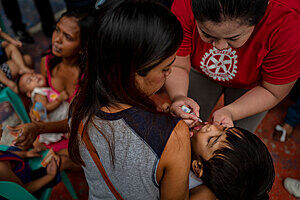Course overview
- Provider
- Futurelearn
- Course type
- Free trial availiable
- Deadline
- Flexible
- Duration
- 3 hours
- Course author
- Svea Closser
Description
This informative three-week course will prepare you to meet the challenges of conducting epidemiologic surveillance to gather data to inform decision-making and planning.
Using the polio eradication effort as a case study, you’ll address the application of surveillance systems in a wide variety of settings.
Apply best practices for healthcare data collection and analysisYou’ll identify various different epidemiological systems in countries such as the Democratic Republic of Congo and Nigeria, and will identify on how to conduct data collection in remote areas.
You’ll then discuss the best practices for conducting epidemiologic surveillance in a wide range of locations, and will come to a range of solutions for the conclusion of how to conduct and use data in a variety of different situations.
Apply the lessons learned from the polio eradication effortThroughout the course, you’ll reflect on and apply the lessons learned from the global polio eradication initiative, an effort led by the World Health Organisation resolved to eradicate the disease poliomyelitis.
You’ll learn lessons from this initiative - the largest of its kind in history - and will apply data for decision-making going forward. You’ll also discuss the challenges and strategies that can be presented when applying data.
Learn from epidemiology experts at Johns Hopkins School of Public HealthConvening the Synthesis and Translation of Research and Innovations from Polio Eradication (STRIPE)- a project bringing together polio experts from around the world - you’ll be learning from the best minds at the Johns Hopkins School of Public Health; a leading global institution in healthcare.
Many lecturers who teach the course are partners as part of STRIPE, and these partnerships are recognised within every lecture.
Similar courses

-
1 hour
-
13 lessonsCertificate

-
4 hours
-
22 lessonsCertificate

-
5 hours
-
24 lessonsCertificate

